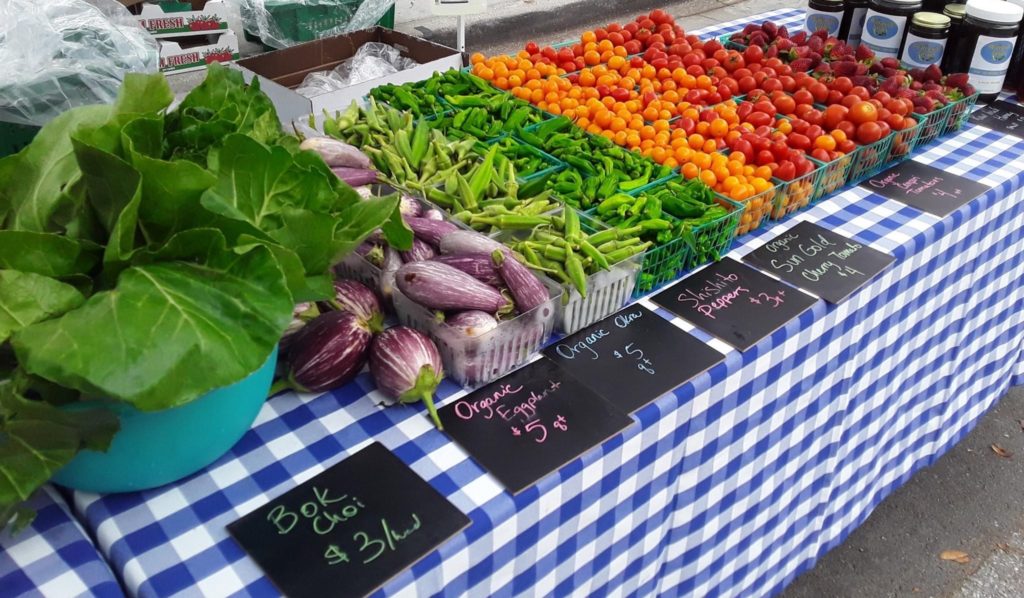By Tiffany Bailey
There are many benefits to selling organics to retail customers. First of all, when growers are selling retail, they are cutting out parties from the middle that normally exist between a grower and a customer. This provides the grower with the highest possible financial benefits.
Also, growers are able to interact directly with customers. This provides the grower with quick feedback about products. Growers can use this feedback to make adjustments and truly understand the needs and wants of their customers. Interacting directly with customers also allows both the grower and the customer to feel the benefits of community and connection.
There are several considerations to keep in mind in order to successfully sell organics through retail avenues.

TARGET YOUR MARKETING
Unlike selling to a wholesale customer, when it comes to selling retail, the grower is ultimately responsible for marketing their own products. This can be difficult, especially for small growers. The key to marketing successfully is to target a very specific type of customer that you know seeks your products. Marketing to the masses is expensive and often ineffective. It is important for growers to identify who their customer types are and what things they all have in common.
Growers must find the best way to reach customers who are passionate about organics and buying local. Many growers utilize social media, which provides a great way to reach people. But, in order to break through all the noise, you must market your product in a way that really speaks to the right people that are willing to buy your products. Social media can provide some detailed information. Most social media outlets provide data on who is engaging, and growers can look for common threads to further use to target specific people.
KNOW HOW MUCH TO GROW
It can be a big challenge for growers to know how much customers are going to buy. Crops take time to grow, and growers must plan far ahead of retail sales. It is very helpful to keep records and notes on past sales so the information can be used to guide growers in crop planning.
If growers are selling at a farmer’s market, they may have a slow day or bad weather that leaves them with extra product. It is helpful to proactively identify alternate back-up customers who can help with extra products that were harvested but not sold. Creating relationships and plans on the front-end can reduce stress and financial issues resulting from unsold products.

CREATE CONNECTIONS
Customers have a lot of options these days. Especially if growers are selling products online, if there is no real connection, customers have the ability to leave and not come back. It is important for growers to take extra steps to create real connections with their customers. Consumers who are buying directly from a grower are skipping out on the convenience that is often provided by large retail chains. In return, these customers have certain expectations and need to be rewarded with the benefits of buying direct. Engage with them. Educate them. Ask questions, understand their motives and meet their expectations. Appreciate them. Growers need to show customers how they are making a difference by choosing to buy retail.
If you are considering selling your organic products through retail markets, be sure to remember these considerations. They will help you gain the benefits of working directly with customers.
Tiffany Bailey is owner of Honeyside Farms in Parrish, Florida.









